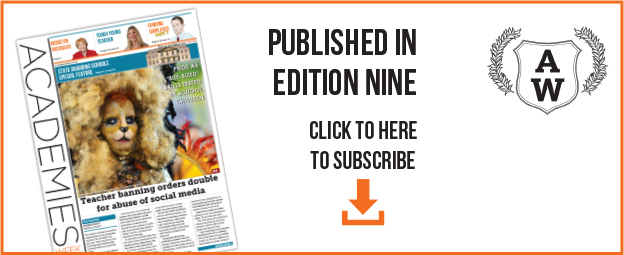All state boarding schools have two sets of accounts: the standard accounts of any state day school and, separately, the accounts of all expenditure and money received for boarding.
The cost of heating and lighting of the school buildings appears in one set; the parallel expenditure for heating and lighting a boarding house appears in the other.
There are, however, some more complicated areas where costs have to be split.
At Royal Alexandra & Albert, I do the job of a day school head but I spend a proportion of my time on boarding matters. I have two deputies: one who has responsibility for the curriculum but does some boarding duties, and the other who is responsible for boarding with a relatively small teaching timetable. For all three of us, a percentage of our employment costs (both salary and on-costs) is allocated to the school and a percentage to boarding. Obviously, almost all of the cost of the curriculum deputy is allocated to school and the majority of the cost of the boarding deputy is charged to boarding.
We also have teachers who run boarding houses – housemasters and housemistresses. They receive an enhancement on top of their teaching salary and have a lightened timetable. The boarding account pays the salary enhancement and a proportion of the teaching salary to compensate the school for the fact that the teacher does not teach a full timetable.
State boarding schools have never been allowed to make a surplus on the boarding account and they are not allowed to subsidise education from boarding.
A recent decision by the Treasury and the Department for Education (DfE), however, requires state boarding schools that are academies to implement “full cost recovery”. This means that not only must they ensure that no boarding costs are being covered by the school but also that boarding academies should aim to make an 8 per cent surplus on turnover on the boarding account.
This surplus is to be spent at the discretion of the governors. Two example of possible given by the DfE are major capital works or renovation, and financing boarding places for vulnerable young people.
An 8 per cent surplus, which can be cumulated over a number of years, might provide a school with a useful capital sum for a new roof for a boarding house, for example. However, a school with just 50 boarders and boarding charges of, say, £11,000 per year per boarder, would only be aiming to generate £44,000 per year which would not be enough to finance any serious, necessary work to boarding accommodation or to finance an expansion of boarding.
Paul Spencer Ellis is Headmaster of the Royal Alexandra & Albert School in Surrey. Ellis is also Chair of the State Boarding Schools’ Association








Your thoughts